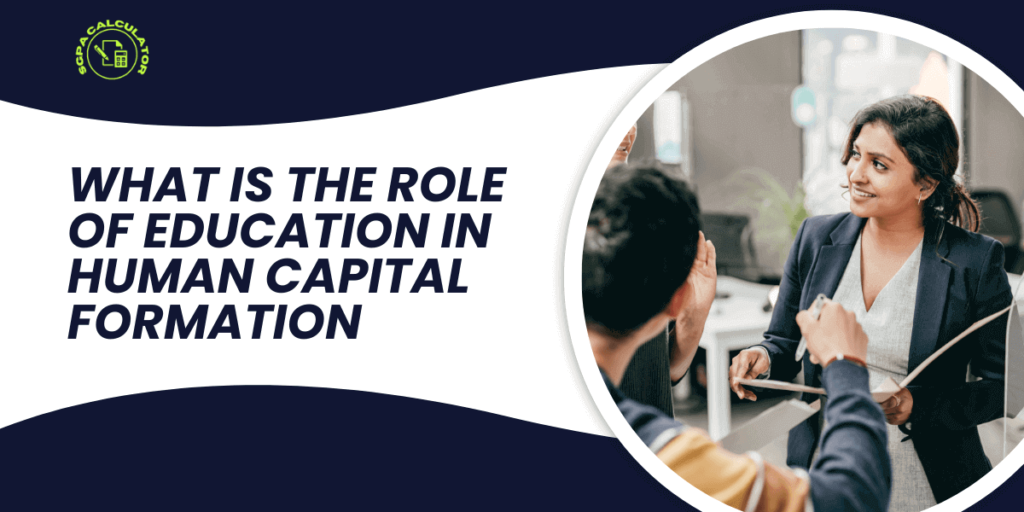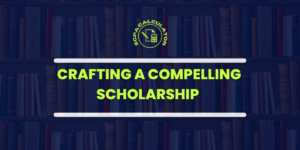Human capital has become a crucial engine of economic growth and development in today’s quickly changing global environment. The word “role of education in human capital formation” refers to the information, expertise, potential, and skills that people have, which help them progress personally and socially. The growth of this human capital is shaped and nurtured in large part through education, which is the cornerstone of human development. This article examines the multidimensional function of education in the development of human capital, emphasising its importance in promoting innovation, social mobility, and economic success.
Education and skill development
Fundamentally, education is a means of spreading knowledge and developing skills. Individuals develop the cognitive, technical, and soft skills essential to excel in a variety of disciplines through formal and informal learning procedures. The basis for more advanced skills is laid through fundamental education, hp elementary education, including reading, writing, and maths. In addition, higher education, vocational training, and specialised education provide people with specialised information that is relevant to their job goals.
A crucial component of the building of human capital is skill acquisition. Increased productivity from a trained workforce contributes to economic prosperity. Industries today depend largely on technology and innovation, thus they need employees with the most recent skills.The student used SGPA Calculator. Education ensures that people can continue to adapt to shifting work settings, which helps to increase their employability and enables them to effectively contribute to the economy.
Economic Development and Growth
Economic development and progress depend greatly on education. Higher rates of economic prosperity and creativity are typically found in nations with educated populations. A workforce with more education is more productive, which increases output and boosts overall economic performance. It is no accident that nations with higher rates of literacy and better educational access frequently have higher living standards and lower rates of poverty.
Furthermore, education encourages the movement of human capital. People are better prepared to move from low-skilled professions to higher-paying and more satisfying roles as they acquire skills and knowledge. A more egalitarian society is a result of this upward mobility, which improves income distribution and lowers inequality.
Creativity and Innovation
Beyond contributing to economic development, education also fosters creativity and innovation. Critical thinking, problem-solving, and analytical abilities are developed through education and are essential for the advancement of science and technology. People with higher levels of education are more inclined to challenge preconceived notions, consider novel concepts, and lead the way in advancing science, technology, and the arts.
Education also promotes a culture that values diversity of ideas. Individuals are exposed to a variety of opinions and ideas through interactions within educational institutions, whether in research settings or classrooms. This diversity encourages the synthesis of several points of view, which ultimately results in creative strategies and answers to difficult problems.
Social Change and Equity
Social mobility is facilitated through education, which enables people to rise above their socioeconomic circumstances. It gives people from underprivileged backgrounds a chance to improve themselves and end the cycle of poverty. Education provides the skills required to overcome limiting possibilities and aspiration to better-paying professions and living circumstances.
By obtaining the knowledge and abilities needed to access a wider range of employment opportunities through education, marginalised people might lessen social and economic inequalities. The development of a just and inclusive society depends on this component of education’s contribution to human capital formation.
Read Our Post: Speech On Education System In India
Wellness and Good Health
Along with improving economic opportunities, education also promotes better health and general well-being. As people with greater levels of education tend to make more educated lifestyle decisions, utilise healthcare facilities, and adopt healthier habits, education is connected to better health outcomes and behaviours. People who have access to education are better equipped to manage their health, prevent diseases, and make wise decisions for their family and themselves.
International Competitivity
A workforce that is globally competitive is necessary given how intertwined countries are today due to globalisation. The ability to participate effectively in the global economy depends heavily on education. Education promotes abilities including language proficiency, cultural sensitivity, and cross-cultural cooperation.
Additionally, education gives people a deeper comprehension of universal issues like social justice, public health, and climate change. Citizens who are well-informed are better able to participate in meaningful discussions on these issues, offer their input during policy debates, and strive for international solutions.
Various Obstacles and Future Directions
Although education is unquestionably a tremendous tool for the development of human capital, there are obstacles that prevent it from reaching its full potential. Access disparities to high-quality education continue to be a major concern, particularly in developing and low-income nations. The educational options available to some communities may be constrained by gender disparities, subpar infrastructure, and insufficient funding.
Read Our Blog: Rishi Sunak Education
Additionally, one must constantly learn new skills during their lifetime due to the rapid evolution of technology. The traditional educational system has to incorporate possibilities for lifelong learning and promote digital literacy in order to respond to these developments.
Conclusion
The contribution of education to the development of human capital is extensive and varied. It not only gives people the tools they need for success in their personal and professional lives, but it also stimulates economic growth, supports innovation, and encourages social mobility. With the use of education, people can break down socioeconomic barriers and enhance their quality of life. Investments in education are not simply investments in human capital but also a commitment to a better, more inclusive future as we manage the difficulties of the modern world.





